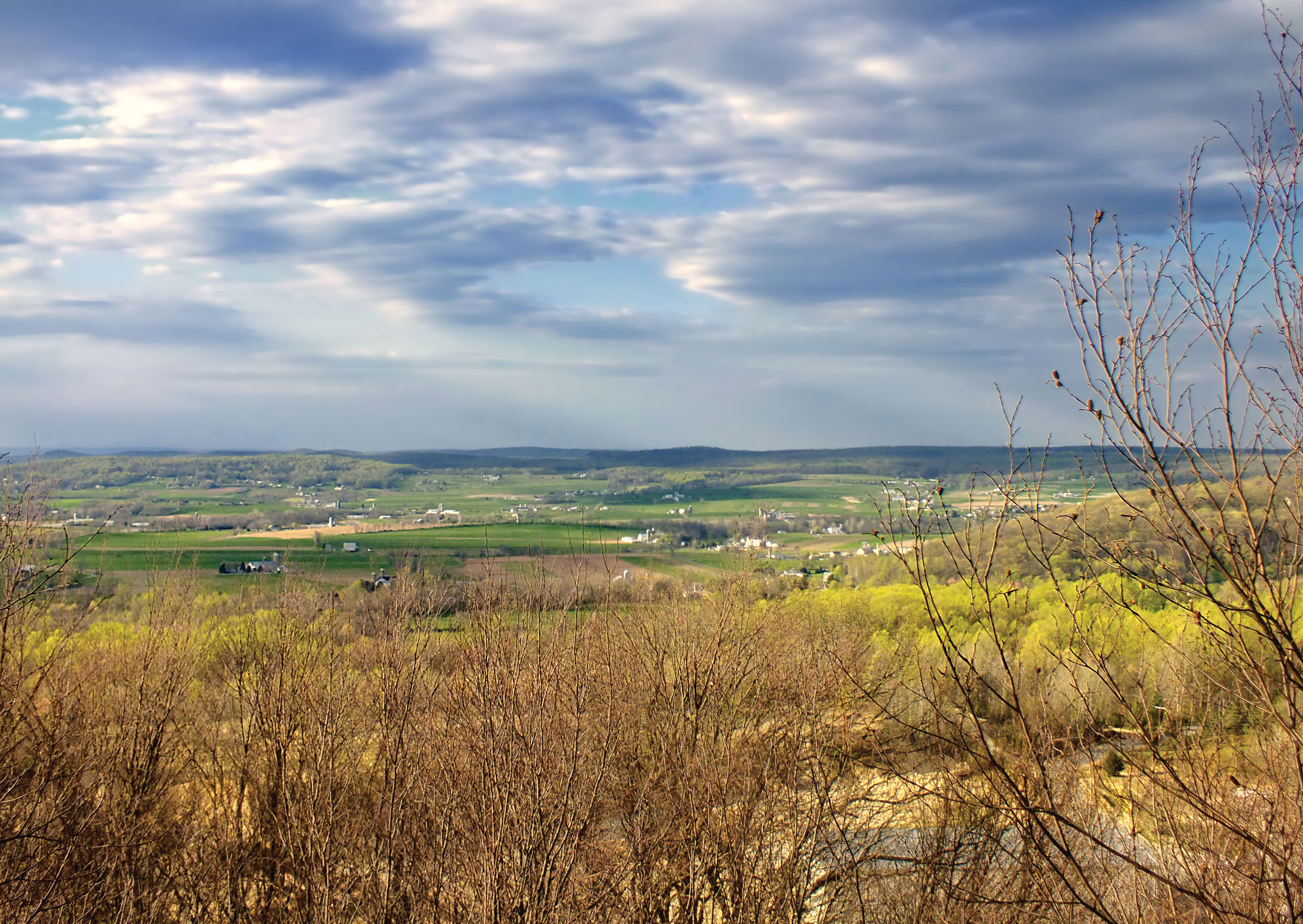If you’re in Philadelphia to see the Liberty Bell (which means you’re really there for the cheesesteaks), take some time away from the city crowds and go to Lancaster County, Pennsylvania. Rolling fields, horse-drawn carriages, country-style meals, and roadside mom-and-pop shops. The women wear bonnets and the men wear beards. They plow their fields and keep their only telephone in the barn for emergencies.
Time travel? No, but it’s as close as you can get. It’s Amish country, a pastoral paradise in the center of Pennsylvania. It’s a fresh, unfamiliar culture in the middle of an area full to bursting with American history. There’s a lot to enjoy about the Amish, and they’ll welcome you with their Pennsylvania Dutch accents and impeccable manners.
The best time of year to go is in the autumn during the harvest. Not only will the trees be turning to the most brilliant shades of red and yellow, but there will be loads of fresh produce being sold on every roadside farm. Of course, that’s the season most people want to be there. If you’re looking for a quieter vacation, the springtime is your best bet. Spring is planting season, and you’ll find tiger lilies growing like weeds along the sides of every highway.
Can you smell the Shoo Fly Pie? It’s a must-have before you go. It’s a traditional treat: a sweet molasses pie with a cake-like consistency and a crumbly topping. And it’s absolutely kosher to snag a slice for breakfast.
Once you get to Amish country, divide up your time wisely. Be sure to find a place where you can ride in one of those black carriages and watch the countryside roll by. Take time to stop at one of their little shops to get some home-baked goodies. (Lard cakes and thimble cookies—those are real things, I promise.)
Look up any local auctions in the local paper. This will give you a better chance to rub shoulders with the Amish in a natural way. Be sure to bring a pair of good shoes, though; the local auctions are called “muddings” for a reason.

Be careful when driving. The Amish travel by horse-drawn carriage on modern-day roads alongside cars. Photo by Nicholas A. Tonelli.
Keep an eye out on Sunday. The Amish meet at one another’s houses for church meetings, and you could get caught in a horse-and-buggy traffic jam! Of course, that could be delightful in its own way. Just be careful not to frighten the horses. The Amish gather every other Sunday for meetings (leaving the other Sundays for visiting family), and their sermons are given by members of the congregation chosen by the bishop. The Amish value humility, so no one gets advance notice about the sermon he or she will be asked to give. The idea is that everyone’s sermons are equally spontaneous.
The Amish show their humility in other ways too. They dress in solid colors (usually black) so no one feels like they’re better than anyone else. A successful Amish business owner will even sell his business if he feels it’s becoming too successful.
The Amish can be misunderstood quite often because their way of life is peculiar to mainstream America. For example, the Amish don’t hate cars for being the devil’s machines or anything like that. Rather, they believe cars have the ability to take people too far from their families. Anything that would negatively impact family relationships is not acceptable to the Amish—hence the horse and buggy.
Before you get too excited about your country holiday, remember that for the Amish this is their way of life. It’s also their religion. Their lives are centered totally on their family and their faith.
There are lots of ways to show your respect to your new Amish friends. One thing that might surprise you: don’t take pictures of them. It’s not just about being polite; they feel it’s morally wrong for them to be the subject of pictures or video recordings. It can be tempting for tourists, but a more respectful way would be to find a local book or postcard in a local store. They’ll appreciate the privacy from the world outside.
After a week in Lancaster County, you’ll wish you could spend your days listening to the summer cicadas or watching the autumn skies fill with starlings. You’ll be taking home more than just memories of a gorgeous countryside and mouth-watering food; you’ll feel a deeper connection with your roots.
—Acacia Haws
Feature photo by Nicholas A. Tonelli.



